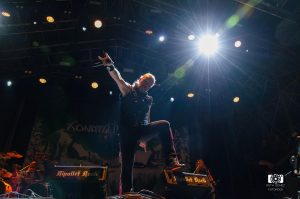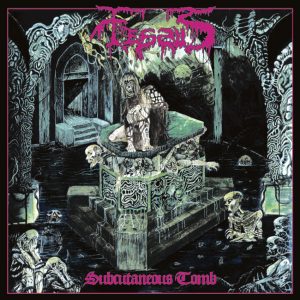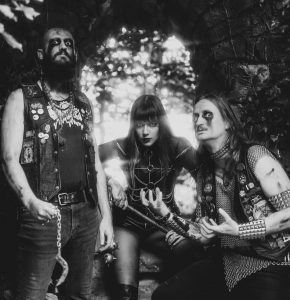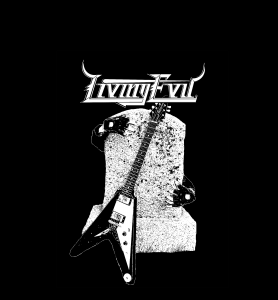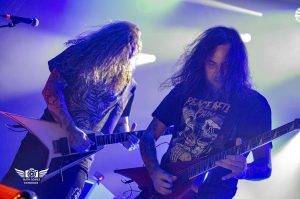FRIGID WINTER: Shattering Misogyny and Myths in Black Metal
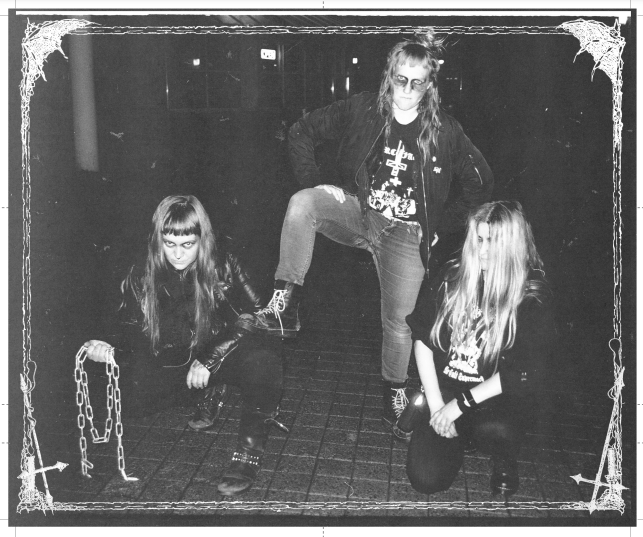
In this illuminating conversation with Finnish black metal band Frigid Winter, we explore themes that transcend music, delving into societal norms, environmental concerns, and the duality of anger and vulnerability in extreme metal. The band opens up about their fusion of black metal and punk, their feminist perspective, and how their creative process is shaped by Finland’s stark natural landscapes.
From addressing elitism and misogyny in the black metal scene to expressing existential dread and ecological grief in their lyrics, the band reveals an ethos that’s both unapologetic and thought-provoking. As they put it, «Some Finnish black metal trueheads are misogynistic Nazis, but we don’t need their approval.» Beyond the riffs and raw aggression, Frigid Winter stands as an example of how music can challenge conventions and offer a voice to underrepresented perspectives, even in the darkest corners of the genre.
-Hi, first off thanks for answering to our questions. How’s everything doing in the lair of Frigid Winter?
It’s going well. We´re celebrating kekri, a traditional Finnish harvest festival, planning a new release and getting excited for the coming winter.
-Frigid Winter clearly blends influences from black metal and punk, both genres with rich histories of challenging societal norms. How does this fusion reflect your personal journey as musicians, and what does it allow you to explore in your music that one genre alone couldn’t?
Personally, we think of ourselves as a black metal band first and foremost, but our punk roots can probably be found in the rawness, aggression and a certain straightforwardness of the music. Punk has also encouraged us to pick up our instruments and ignore the opinions of others. In black metal, we are fascinated by the coldness, mystery and primitiveness of the music. It also reflects, on some level, our northern mental landscape.
– Given the raw intensity of your music, there’s a certain emotional vulnerability that comes through, even in the heaviest tracks. In a world that often discourages emotional openness—especially for men—how do you navigate expressing deep feelings in your work? Do you think embracing vulnerability could challenge norms within such a traditionally «tough» genre?
It’s great if you’ve heard of sensitivity in our texts, but as a rule we don’t try to write very deep stories. We are attracted to the fairly traditional heavy metal themes of fighting, bloodshed and Satan, although they can also be seen as metaphors for personal struggle. Unlike many male bands, we write more in the she-form, but otherwise we are not at war with the patriarchy in this band. Or if simply existing is a start of a fight?
– Your lyrics often touch on themes of existential dread and social decay. Are these themes meant as a reflection of the modern world, or are they more personal expressions? How do you balance the personal with the political in your songwriting?
Some of the lyrics are very direct reactions to the modern world, such as the New Era of Crucifixion you mentioned, which is about the anthropocene era. In a way, the song is also personal, because we are all horrified by the sixth mass extinction and the ongoing loss of biodiversity, and we are trying to prevent it ourselves, for example by being vegetarians. But as a rule, our lyrics are based on the first wave of black metal, which was not political.
– In Finland, extreme metal has a strong cultural presence, and so does punk in certain circles. How does living in a country where both scenes thrive influence the way you approach music? Do you feel like being in Finland adds a unique flavor to what you create.
It’s hard to say, but at least here in Helsinki it’s been easy to find like-minded people to start a band with. There are many subgenres within both punk and metal, so there’s plenty to choose from. We´re not really sure if Finnishness is part of our music, as many of our influences come from Brazil, Sweden and Norway. It’s a good question, but perhaps non-Finnish people can answer it better.
– Songwriting in Frigid Winter is clearly a collaborative effort, which echoes the communal spirit of punk. When working together, how does this sense of community influence the themes or emotional tone of your songs? Do you believe that music can still create strong, meaningful connections within increasingly alienated societies?
Although our songs are marked as co-written, the starting point is often that one of us writes the riffs and/or lyrics. Then we arrange the song together in the practice room. We have a lot of fun together, and it’s possible that the songs wouldn’t have the same chemistry if we’d done them with a different line-up. But we don’t feel that songwriting is a way for us to find a sense of community in life. We get more of that community vibe from gigs and nights out together.
– Black metal has long been associated with a more insular, sometimes elitist, subculture, whereas punk tends to embrace a broader, often inclusive ethos. Coming from a background that intersects with both scenes, how do you navigate these differing attitudes, and what values do you hope to bring forward through your music?
It’s easy for us to navigate the punk scene, but the black metal scene is more challenging. Some of the Finnish black metal trueheads are misogynistic nazis, who think black metal is men’s music and we are total posers. It’s kind of annoying, but kind of not, because we don’t need their approval. There are not many women playing black metal in Finland, so it would be great if our example would encourage other women to start bm bands too. But again: we don’t have any agenda in this band, except being in league with Satan.
– Your demo is titled «Here Comes the Witching Crew.» How does this witch symbolism resonate with you in a feminist context? Do you see yourselves as part of this «witching crew,» and how does that influence your artistic identity?
Sodom’s song Witching Metal has been an important song and musical influence for us, and that’s partly why we call our music witching metal. Of course, we are also fascinated by witches and the beliefs associated with them. Probably all of us would have been burnt at the stake at one time or another. But there is no greater symbolism involved. We are feminists, but we do not play feminist black metal.
– Your music conveys both anger and introspection, a duality that runs deep in extreme metal and punk alike. How do you personally process the chaos and emotion you bring to your music? Is there a cathartic element in the act of creation, and do you see it as a way of processing the world around you?
The creative process of our band is quite conventional, but behind the invention of the riffs there can be anxiety or a theme that has been brought to mind by the melody. The idea for the lyrics might have come to mind on the bus or in a movie. Sorry to be so boring, haha!
– The Finnish landscape, with its vast forests and long winters, often seeps into the atmosphere of many local bands’ music. Do you feel a connection to your environment in what you create, and if so, how does that connection manifest in your sound?
We all love forests, and some of us even frigid winters. But we don’t feel that our relationship with nature is as much a part of our music as many second wave Norwegian black metal bands. The Finns’ special relationship with nature is also partly a myth. There is a lot of forest industry in this country, and the Finnish national landscape is nowadays a horrible clear-cut area that has nothing to do with a natural forest.
– As you continue to evolve as a band, what do you hope listeners take away from your music, beyond just the sound? Is there a message or feeling you aim to leave behind, particularly when it comes to how people engage with music on a deeper, more emotional level?
We have never thought about this from the point of view of the public. Selfishly, you’re always thinking about how you’ve done, for example, in a gig. We’ve been really pleased that people have come to the gigs at all. We want to train and develop as a band, and make songs that we can stand behind proudly.
-That’s all from our side. Thanks again for answering to these questions. If you’d like to add some final words; it’s your turn.
Thank you! This was our first interview abroad. It was great to see that you had analysed our music more than we ever have! At some point it would be really cool to play gigs outside of Finland. Feel free to send us gig offers!

